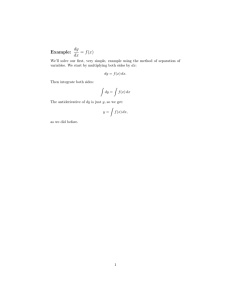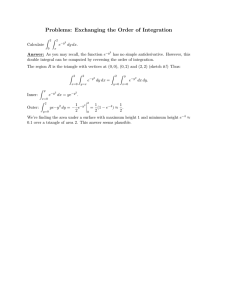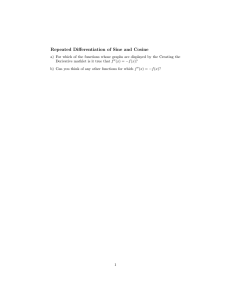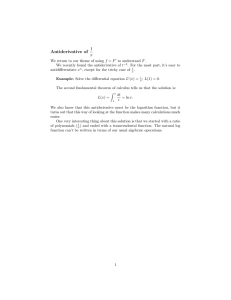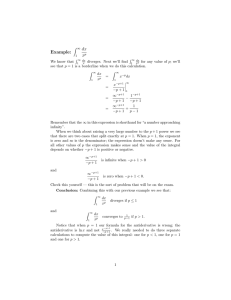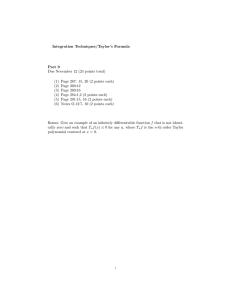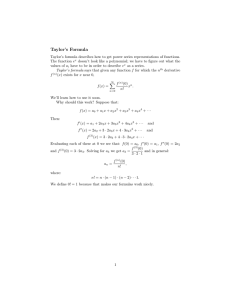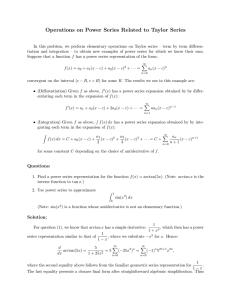Document 13743693
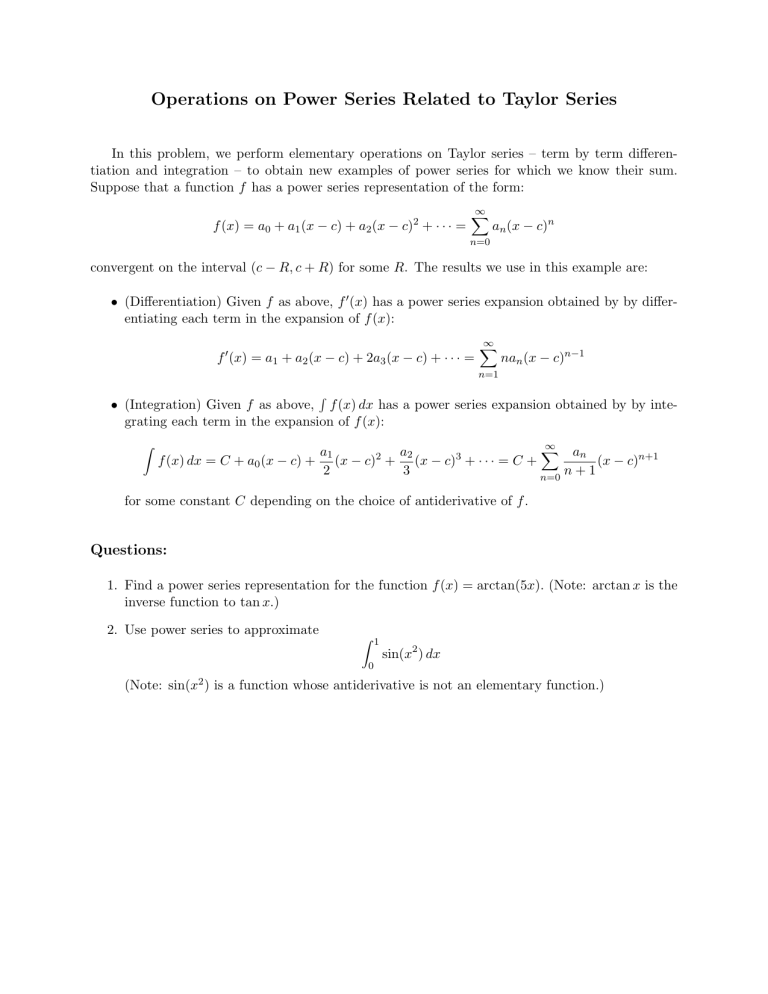
Operations on Power Series Related to Taylor Series
In this problem, we perform elementary operations on Taylor series – term by term differen tiation and integration – to obtain new examples of power series for which we know their sum.
Suppose that a function f has a power series representation of the form: f ( x ) = a
0
+ a
1
( x − c ) + a
2
( x − c )
2
∞
�
+ · · · = a n
( x − c ) n n =0 convergent on the interval ( c − R, c + R ) for some R .
The results we use in this example are:
• (Differentiation) Given f as above, f
�
( x ) has a power series expansion obtained by by differ entiating each term in the expansion of f ( x ): f
�
( x ) = a
1
+ a
2
( x − c ) + 2 a
3
∞
�
( x − c ) + · · · = na n
( x − c ) n − 1 n =1
• (Integration) Given f as above, � f ( x ) dx has a power series expansion obtained by by inte grating each term in the expansion of f ( x ):
� f ( x ) dx = C + a
0
( x − c ) + a
1
( x − c )
2
2
+ a
2
( x − c )
3
3
+ · · · = C +
∞
� a n n =0 n + 1
( x − c ) n +1 for some constant C depending on the choice of antiderivative of f .
Questions:
1.
Find a power series representation for the function f ( x ) = arctan(5 x ) .
(Note: arctan x is the inverse function to tan x .)
2.
Use power series to approximate
�
0
1 sin( x
2
) dx
(Note: sin( x 2 ) is a function whose antiderivative is not an elementary function.)
MIT OpenCourseWare http://ocw.mit.edu
18.01SC Single Variable Calculus��
Fall 2010 ��
For information about citing these materials or our Terms of Use, visit: http://ocw.mit.edu/terms .
